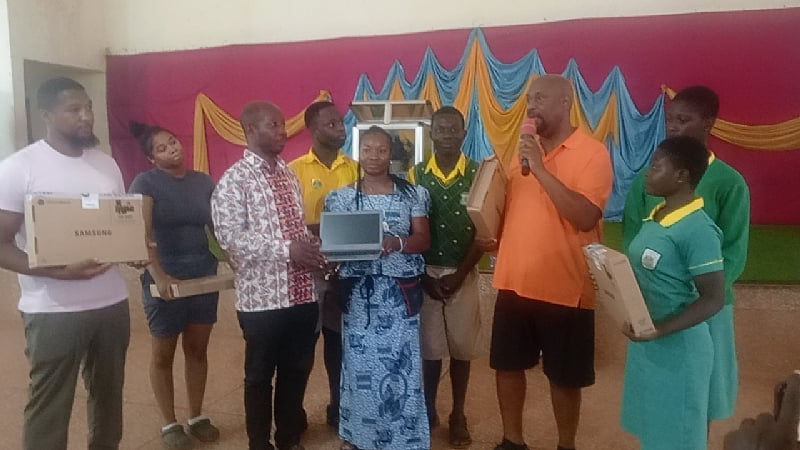A delegation of African Americans from the Teaching Artist Institute (TAI), based in Baltimore, Maryland, USA, joined by colleagues from the University of Cape Coast (UCC), has appealed to President John Dramani Mahama to rename Ghana’s colonial-era forts as “Slave Dungeons” to reflect their true historical significance.
The 27-member group, comprising lecturers, students, and parents, made the call after visiting the Cape Coast and Elmina sites—locations central to the transatlantic slave trade. They argued that the term “castle” misrepresents the brutal history associated with these sites and urged a renaming that truthfully honors the suffering endured by millions of enslaved Africans.
Led by TAI Executive Director Kim Poole, the group described their journey as both a reconnection with ancestral roots and a step toward cultural exchange and collaboration with UCC, particularly its Department of Music and Dance.
In interviews, Poole challenged the current terminology used to describe the sites.
“Castle” traditionally denotes a luxurious fortified residence for royalty, symbolizing power and protection. However, she said the so-called colonial castles were actually holding prisons where millions of enslaved Africans were confined in cramped, dark, and suffocating dungeons before being shipped across the Atlantic, never to return.
She emphasized that the Cape Coast and Elmina structures were not places of nobility or grandeur, but instead grim sites of human degradation.
“The castles’ imposing facades mask the horrific realities within their walls,” Poole stated, adding that beautiful names “whitewash the pain and indignity suffered by Africans.”
Mr. Elijah Etheridge, a parent and lecturer with TAI, echoed her sentiments.
“Today, those of us here in Ghana remember our ancestors’ shared, terrible history marked by cruelty, greed and lament. Ghana was a major hub for the abduction and shipment of individuals, families and communities into slavery across the Atlantic, yet, the signs greet us with ‘Cape Coast Castle’ or ‘Elmina Castle,’ when in truth, these were dungeons that still bear the stench of struggle and indignity.”
He urged Ghanaians not to romanticize Western nations as havens free of hardship, instead drawing inspiration from the resilience of enslaved ancestors in facing modern challenges such as inequality and poverty.
Dr. John Doe Dordzro, Head of UCC’s Department of Music and Dance, added academic support to the appeal.
“The demand to rename the castles reflects a necessary confrontation with the brutal legacy of slavery. While castles evoke images of luxury and power, these Ghanaian sites stand as monuments to one of history’s darkest chapters, making the name ‘Slave Dungeons’ both fitting and essential.”
Dr. Dordzro noted that such a renaming would not only honor the memory of those who passed through the “door of no return” but would also support healing across the African diaspora and reinforce the need for truthful historical narratives.
Some students within the delegation went further, calling for the reopening of the sealed underground tunnel at Cape Coast Castle, through which enslaved people were marched in chains before being shipped off to the Americas.
In a gesture of solidarity, the TAI group donated laptops to Edinaman Senior High School, which, until now, had just two functioning computers for its 4,800 students. The school’s headmaster, Mr. Ebenezer Obeng, expressed his deep appreciation and encouraged further collaboration between the school and TAI.
TAI’s visit was part of a broader effort to blend artistic education with historical awareness, and to foster cross-cultural connections through community outreach, shared learning, and healing rooted in historical truth.


